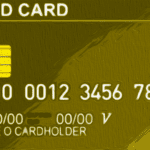Identity theft has risen over the last few years to become a major concern for anyone who uses as much as a credit card and carries out financial transactions online.
Identity theft happens every 14 seconds, calling for more awareness globally. What does identity theft mean, and what are the main types?
Identity theft is the criminal act of using another individual’s personal information and financial details to carry out financial transactions without their knowledge. The four main types include financial identity theft, tax identity theft, medical identity theft, and child identity theft.
Due to its increasing popularity, the term “identity theft” gets thrown around often. In this article, you’ll learn what identity theft is and the four major types to help you guard yourself against them.
Why we like Identity Guard:
Identity Guard is a tool designed to monitor you for signs of fraud and stop identity theft before it happens.
>> Read our full review
Service: Identity Theft Protection
Pricing: $7.50/mo to $25/mo
Promotion: Up to 33% off your plan
What is Identity Theft?
Identity theft is the criminal act of using another individual’s personal information and financial details to obtain loans, make purchases and carry out other financial transactions without the permission and knowledge of the owner.
In the end, the owner of the details may go into debt and crisis. The attack may also ruin their financial reputation, which might take years to recover from.
Types of Identity Theft
Identity theft can happen in different ways, and perpetrators are getting more creative by the day in devising ways to access your financial and personal details.
To protect against this, you should be aware of the ways in which they carry out their schemes. Here are four major types of identity theft you should keep an eye out for:
Financial identity theft
Financial identity theft happens when someone uses the personal details of another person to engage in financial transactions. Credit card fraud is the most common type of financial identity theft and, generally, the most common of all cases of identity theft.
In this kind of theft, a fraudster steals your credit card details to shop online while posing as you the entire time. Social security number theft is next in line.
Here, your SSN is stolen alongside your personal data and used to open new bank accounts, get loans, or establish a new line of credit to milk dry.
The bills are then left for you to pay in the aftermath. If you can keep tabs on your bank account statements, bills, and all bank accounts in your name, you can easily spot these dubious activities on your account.
When you discover any of these discrepancies, report them to your bank or financial institution immediately. If you also notice an unusual decline in your credit score, report immediately.
Chances are, an identity thief is working behind the scenes using your financial details to obtain loans without your permission.
Tax identity theft
Tax-related identity theft occurs when someone steals your personal information and social security number to file a false tax return and get a refund in your name.
When it’s time to file your returns, you’ll realize that “you’ve” done it already. The likelihood of this fraud occurring is higher as you approach the end of the tax-filing window for the year.
Toward this period, you need to be more protective of your financial information and personal data. This is the time in which hackers will be on the prowl, and you can’t afford to be a victim.
It’s particularly essential to be cautious when it comes to tax identity theft, as you can’t replace your social security number in hours as with credit cards.
Medical identity theft
As its title suggests, medical identity theft happens when your medical records, details, and insurance gets into an identity thief’s hands. The criminal uses them to access medical care from your registered hospital, get drugs/medical supplies, and file insurance claims on your behalf.
Until you notice the fraud and start the necessary damage control, the fraudster will continue to access your medical rights and privileges. This can continue uninterrupted for months and years, especially if you hardly fall sick.
If you are less prone to fall ill, you likely barely check your medical records and details. This means you’re vulnerable to medical identity theft, leaving your credit reports damaged, medical records tainted, and everything about your medical portfolio immersed in deep controversy.
Child identity theft
Identity theft perpetrators can go as far as stealing the details of a child’s social security number to enjoy a variety of child-related benefits. From opening bank and credit card accounts to applying for loans and renting a house, there are no limits to what they can do with the privileges attached to the SSN of your child.
Thankfully, it’s easier to notice these fishy activities since you’ll get mail as soon as the criminal completes the act. You’ll also receive notices or bills from the IRS informing you that your child has failed to pay his/her taxes when you’ve already done so.
This form of identity theft is more common and lucrative for identity thieves since children do not have a credit history. Consequently, it’s best to always be wary of where you provide sensitive information about your children.
It’s also important to be wary of family members, friends, neighbors, and people in close contact with your family. They are the usual culprits of this type of identity theft.
Tips for Reducing Identity Theft
- Be careful of online platforms where you divulge personal details. If it’s not a reputable platform, exit the page once they start asking for personal information.
- Watch out for phishing emails. Identity theft criminals can create a fake landing page from your bank or service provider to lure you into giving away personal details. Be more careful and scrutinize messages. Even better, always go to the provider page directly and never through a link.
Summary
The internet is a ground-breaking innovation that has made life easier for us by seamlessly blending fun and work. Yet, it has also left us vulnerable to cyber criminals.
Identity thieves steal money and reputation. Therefore, it’s important to be aware of the forms of these thefts and take steps to protect yourself against them.
Read our identity theft protection buyers guide to help you get protection today.
Identity Guard
Identity Guard offers personalized identity theft protection, secure credit monitoring, and credit protection.
—————————————————————————————————————————————————————————————-
By: Donny Gamble
Title: What is Identity Theft and the 4 Different Types?
Sourced From: retirementinvestments.com/security/identity-theft/
Published Date: Wed, 17 Aug 2022 11:38:02 +0000


















